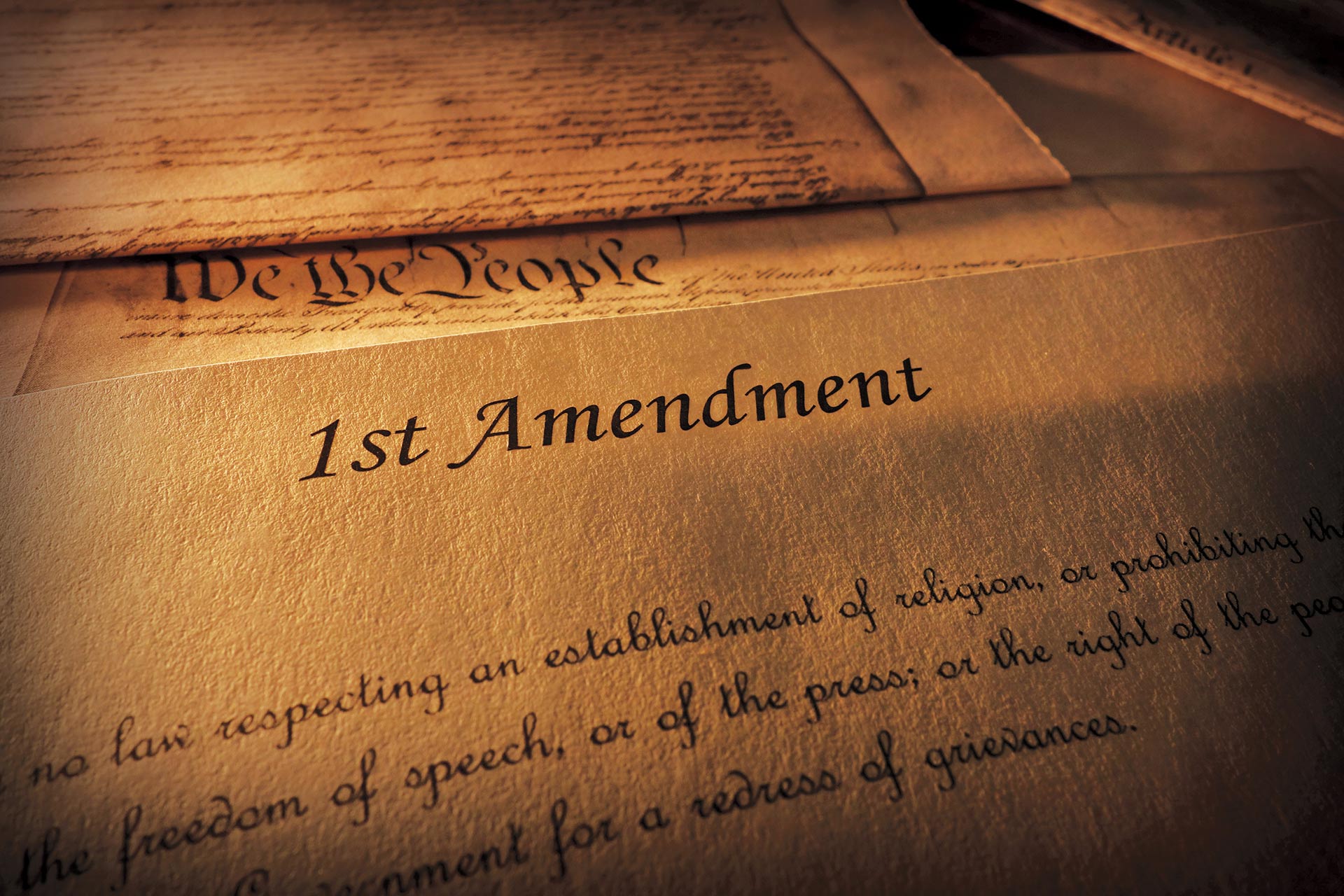[ad_1]
How officers should handle provocateurs at large

The internet is ablaze with videos of so-called First Amendment auditors. Provocative individuals, often referring to themselves as “journalists” go to extremes to conspicuously take photos and videos in or near public areas. Among their favorite haunts are police departments, city halls, libraries and other public buildings. Any police officer willing to take the bait of their disrespectful affronts is a prime candidate for a full-on internet exposé. Most of these videos can be found on social media and video-based online mediums such as YouTube.
Describing themselves in their videos and tag lines as constitutional protectors, these “auditors” tout that they are there to ensure compliance with the Constitution, the essence of their motive is more akin to becoming internet heroes to their viewers.
To be fair, private entities are sometimes targeted as well. By posting themselves on a public sidewalk, they film the comings and goings of customers at a particular business. Their goal is often achieved when an employee or business owner approaches and asks what they’re doing. The antagonists are quick to point out they are occupying public property and have the right to film or photograph as they wish. While this is true, it’s often off-putting to the employee or owner and not uncommonly, an argument ensues, and the police are called to intervene. This is the “jackpot” the antagonists seek. Their video now has a verbal confrontation with someone from the business, the police arrive, and the antagonizing goes into hyperdrive, which guarantees more clicks from their respective followers.
This phenomenon is relatively new, having propagated significantly in the age of cell phone cameras. These self-celebrated antagonists consider themselves constitutional champions in service to the public. They see themselves as the protectors of constitutional rights and are quick to say so. What they don’t admit, though it’s clear in the videos, is that their words and tone of voice indicate they want a confrontation. Their ideal target is an assertive police officer with no verbal filter.
Case law has been developed as the antagonists are arrested or ousted from a public venue, and a lawsuit ensues. In Fields v. City of Philadelphia, a 2017 case that stemmed from incidents occurring in 2012 and 2013, the court explicitly says that members of the public have the right to record police officers’ activities in public places. Case law is rife with similar rulings. Other rulings, in cases like Glik v. Cunniffe and ACLU v. Alvarez, indicate that U.S. courts are upholding the actions of these self-proclaimed constitutional scholars.
Incidents of filming police officers and other public officials have become extremely common. The Rodney King incident in the early 1990s was one of the most famous cases of police tactics being filmed and broadcast to the world. In a world where everyone has a phone capable of making videos, it should go without saying that police will be under greater scrutiny than ever.
So, what can law enforcement agencies and officers do about it? The number of cameras out there will not decline anytime soon, so police agencies and their employees should start each day with the knowledge that being filmed at some point during their shift is more likely than not. To tackle the inevitable videoing of police activities, there are a number of proactive steps that departments can take to reduce friction, opportunities and liability. Let’s take a look at the following:

- Education and training. Provide quality training to officers and staff about their limitations in these situations. The First Amendment of the U.S. Constitution is a good place to start. While the First Amendment is not absolute, it’s very generous in its application. Ensure that officers understand that unless the antagonists are truly interfering or breaking a law, their actions should be considered lawful by default. If an arrest is made, officers should be absolutely certain that one or more laws have been violated because it will be posted online for the world to see once the antagonist gets out of jail. Additionally, officers should not seize or threaten to seize an antagonist’s camera or phone. In almost every case, this does not bode well for the officer or the department he/she serves.
- Limiting access to restricted areas. Are the interior parts of your station (other than a public lobby area) sealed off by doors or other official barriers? Do you have signage indicating “authorized personnel only” or “no public entrance”? These are things that can be done relatively inexpensively and provide a layer of security for a building. These antagonists assume if the door is open or a hallway is unrestricted, they can enter without interference.
- Avoiding confrontation. It’s important to remind officers and other staff members that these First Amendment auditors are experts at being antagonistic. They seek to provoke harsh words, threats or physical confrontations. This is the bread and butter of their efforts. It’s difficult to be the target of hateful and defiant words and not respond in kind. It’s imperative that public employees practice silence in the midst of verbal attacks. Not only does silence destroy their attempts to provoke, but it also makes for a boring video. We don’t want to provide antagonists with fodder for their anti-police viewers.
- Copyright infringements. As a last resort, you can launch a copyright infringement assault of your own. Simply play copyrighted music loud enough for the video to pick it up. Auditors cannot play videos with copyrighted music unless they pay royalties to or receive permission from the artists. Many times, the online platform where they post the videos will likely reject them based on the background music alone. Most auditors don’t want to go through the long or expensive process of getting official permission for the use of a song for one lousy video.
As public entities, we are rightfully under the watchful eyes of taxpayers. We should provide quality services while remaining open to inspection and accountability. At the same time, we are human beings who don’t enjoy being under the microscope and potentially the star of a viral video because of our jobs. Fair or unfair, this type of scrutiny isn’t likely to go away anytime soon. Our interests are best served by being prepared, professional and nonconfrontational. Our goal here is to make their videos as dull as possible.
[ad_2]




